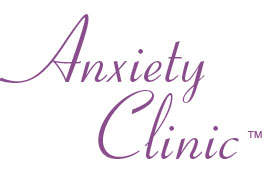Signs Of A Panic Attack
Signs of a panic attack can be interpreted to mean different things by different people. For example, one person may consider the signs of a panic attack to be what happens during a panic attack (which we would label 'symptoms of a panic attack') whereas another person may interpret signs of an attack to be what happens in the lead up to a panic attack. On this page we'll focus more on the 'lead up' signs, why focusing on them becomes a significant part of the problem and how constantly being on the lookout for such signs plays a key role in actually causing panic attacks.
If you've already done all your research, have had enough of panic attacks and are ready to recover - you can contact one of our Consultants who will be happy to answer all of your questions, explain how we work and outline your treatment options. You can call us on 01782 855585, 11am to 9pm, seven days a week. Our advice is free and without obligation.
What Are The Most Common Signs Of A Panic Attack?

As humans, although we share many things in common with each other, there will inevitably also be differences. Thus, although in this section we will discuss the most common signs of panic attacks - there will be exceptions. For example you don't need to experience each and every sign we discuss to 'qualify' and it is quite possible that you may experience signs we have not discussed here.
The most common signs of an impending panic attack are:
- A change in heat sensitivity - often feeling hot or stuffy.
- Unusual sensations within the body.
- A dry mouth.
- Waves of nausea.
- Frantic, anxious self-talk in your head.
- Feeling as though you are dissociated (like being in someone else's body).
- A change in vision (altered focus, depth perception or colours appearing more vivid).
- A change in hearing (white noise, hearing your heartbeat, muffling of sound, tuning out of conversations)
- Tightening of the chest often accompanied by palpitations or increased heart rate.
- Irregular breathing patterns.
- Pins and needles in the hands or feet.
- Feeling a wave of fear accompanied by the need to escape.
- Frantic internal planning (thought process) on how to conceal, suppress or avoid having a panic attack.
If you can identify with some of the above signs, it is important that you understand how focusing on such things can actually become a problem in itself. We'll explain why in the next section:
How Does Focusing On These Signs Become A Problem?

It is instinctive for most people, having already experienced one panic attack - to be on the lookout for another. The theory being that if you catch it early, there's more chance of stopping it. Unfortunately, it is nothing more than a theory - and one that simply doesn't work in the real world.
Typical examples of how people work with regard to focusing on the signs of a panic attack are as follows:
People can become hypervigilant. This means that they are constantly acutely aware of what is going on both inside their body and also in their immediate environment. This process is common in cases of Post Traumatic Stress Disorder (PTSD) and over the long term is incredibly stressful.
For many panic attack sufferers, noticing something as subtle as a tingle in their fingers, a sensation in their gut or even a change in temperature - it automatically means there's a problem and a panic attack is on its way. In truth it doesn't necessarily mean that at all. Anyone (whether a panic attack sufferer or not) can notice tingles in their fingers, sensations in their gut or a change of temperature - however, non-sufferers don't apply meaning or importance to such things.
Thus the differences between a panic attack sufferer and a non-sufferer are two fold. First the panic attack sufferer actively 'looks for signs' and this results in hypervigilance which in turn means they 'notice more' than a typical non-sufferer. Then secondly and bearing in mind that a panic attack sufferer will have far more awareness of their body than a non-sufferer - they then attribute the sensations they feel to having meaning relative to suffering another panic attack. Essentially they find what they are looking for.
The truth is that doing what comes instinctively in terms of over-awareness and panic attacks actually becomes a problem in itself. In the next section we'll describe how this over-awareness can actually contribute to and cause panic attacks.
How Does Hypervigilance Contribute To Panic Attacks?

If you ask any sufferer of post traumatic stress disorder about their day to day life they'll tell you how they are constantly checking, thinking and rationalising to make sure they remain safe. They will also tell you that it is a thankless, stressful and exhausting process... and a miserable way to live.
Although it is true to say that panic attacks are different to PTSD, the process of hypervigilance works the same. This means that hypervigilance quickly becomes stressful, exhausting and is a miserable way to live for a panic attack sufferer in the same way as it is for a PTSD sufferer.
Let us consider for a moment what causes panic attacks. If you've just landed on this page through a search engine then it is important you read our page entitled What Causes Panic Attacks? Essentially panic attacks are a 'healthy response' to an unhealthy level of stored stress and anxiety. However, if the process of hypervigilance is stressful and exhausting and the sufferer is doing it all day every day - what is that going to do to their stress and anxiety levels? Push them up - right?
Thus we have a cycle that is often created soon after the very first panic attack. The sufferer, traumatised by the initial panic attack, becomes hypervigilant in terms of being aware of and actively avoiding having another. Unfortunately the stress and anxiety created purely through hypervigilance contributes directly to the pressure that causes panic attacks. Thus the more a person runs the hypervigilance cycle, the more stress and anxiety they push into their system, which in turn results in more frequent panic attacks. The more panic attacks they have, the more hypervigilant they become and the more stress and anxiety they create. As you can see it is a self-perpetuating cycle that can very rapidly get out of hand.
What Is The Best Way Out Of The Hypervigilance Cycle?

The hypervigilance cycle is driven by emotion - not logic, reason or rationalisation. Thus the issue the vast majority of panic attacks sufferers have is that they try to 'think' their way out of their problem. Unfortunately, trying to escape the cycle through thinking and rationalisation tends to result in frustration, stress and more anxiety which effectively digs the sufferer in deeper rather than getting them out.
The only real way out is to address the emotional software the brain uses to generate emotions - which is essentially what fuels and maintains the cycle. Obviously this is a specialist treatment individual to each person and beyond the scope of what we can explain here. However, the treatment and recovery process is straightforward, fast and requires no medication.
If you're already taking medication, that's fine. We can treat the underlying problem causing your panic attacks and once that's done you can approach your GP with a view to coming off the tablets if you so choose. It will be entirely your decision.
The first step towards recovery is always understanding your problem. On this page we've discussed how hypervigilance creates a significant part of the panic attack cycle and how without the correct treatment it will continue to self-perpetuate. The second step towards recovery is to use what you've learned to take the right action - doing nothing and hoping for the best is no longer an option.
Thus you find yourself at a crossroads. Will you bury your head in the sand, hope for a magic bullet, keep taking the pills hoping something will change - or do you say 'enough is enough'? I'm tired of living like this and I want my life back. I'll do what needs to be done for myself and my family!
If you're ready to help yourself - you're ready to recover and get your life back.
You can contact us directly on 01782 855585, 11am to 9pm, seven days a week - where a Consultant will answer all your questions, discuss your case and go through your treatment options without any pressure or obligation. Or alternatively if you'd prefer further information on how we work, our very affordable fees, our zero-risk guarantee, how long recovery typically takes and how specifically we can help you - choose from the following options:
I live in or near to Stoke on Trent and I'd like information on Face To Face Consultations at the Anxiety Clinic.
I can't get to Stoke on Trent so information on Telephone / Online Consultations would work better for me. (UK Only)




